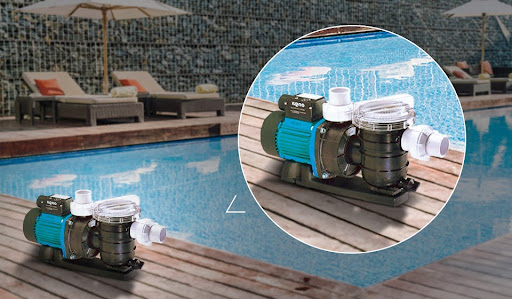Last Updated on December 6, 2024 by Kravelv Spiegel
Maintaining a swimming pool can be a demanding task for pool owners. Conventional chlorine-based systems need precise balance monitoring, frequent chemical purchases, and ongoing care. However, salt water chlorinators have completely changed pool maintenance by providing a more effective, economical, and ecologically friendly substitute. This cutting-edge technology eliminates the need for human chemical additives by electrolysing regular salt to produce chlorine, ensuring a consistent supply of sanitiser.

The Science Behind Salt Water Chlorination
The chlorination of salt water is a simple yet elegant procedure. An electrical charge transforms the dissolved salt (sodium chloride) into hypochlorous acid in pool water as it moves through the chlorinator cell, the same sanitising agent found in conventional chlorine. Without manual chemical inputs, this natural transformation occurs periodically as the pool pump moves water throughout the system, keeping constant chlorine levels.
Reduced Maintenance Time and Effort
Time spent on pool care is drastically reduced with salt water chlorination systems, one of their most significant benefits. In most cases, pool owners only need to examine the chemistry of their water every few weeks, as opposed to periodic measurements and chemical modifications. Because the system is automated, chlorine levels are kept constant, avoiding traditional chlorination techniques’ typical peaks and valleys that call for occasional manual additions.
Enhanced Swimming Experience
Swimming in Salt water pools is significantly more enjoyable than in conventionally chlorinated pools. The water feels smoother and softer against the skin, and swimmers report less dry irritation to the skin and eyes. The low salt content, around a tenth of seawater’s, produces a mild mineral water flavour instead of a salty quality or texture.
Environmental Benefits and Safety Advantages
Salt water chlorination systems have a far more negligible environmental impact than conventional chlorine procedures. These systems lower the possibility of spillage and exposure by doing away with the need to handle and conserve toxic chemicals. Salt water and chlorination are environmentally friendly options because they reduce the carbon footprint generated by chemical packing and shipping.
System Longevity and Maintenance Requirements
A salt water chlorinator system involves less and more straightforward maintenance than more conventional approaches. Cleaning the chlorinator salt cell usually requires only to be done every few months, depending on water hardness and consumption. A significant investment, a high-quality salt water chlorination system can last five to seven years before the salt cell replacement.
Impact on Pool Equipment and Surfaces
Modern salt water chlorination systems are designed to be compatible with most pool surfaces and equipment. However, proper installation and maintenance are crucial to prevent potential issues. Regular monitoring of salt levels and adequate water balance helps protect pool surfaces and equipment from corrosion or scale buildup, ensuring the longevity of the chlorination system and pool infrastructure.
Cost Analysis of Traditional vs. Salt Water Systems
The savings become evident when comparing the annual operating costs of traditional chlorine systems versus salt water chlorination. Conventional systems require weekly chemical purchases, test kits, and stabilisers, often totalling $600-$800 annually. In contrast, salt water systems typically cost less than that and have minimal usage of electricity, representing significant savings over time.
Water Quality and Chemical Balance
Salt water chlorination systems excel at maintaining consistent water quality. The steady production of chlorine helps prevent algae growth and bacterial contamination while reducing the formation of chloramines, the compounds responsible for the strong chlorine smell associated with traditional pools. This results in more stable water chemistry and fewer adjustments throughout the swimming season.
Conclusion
Salt water chlorinators represent a significant advancement in pool maintenance technology, offering numerous benefits in terms of time savings, cost reduction, and improved swimming experience. These long-term advantages make it an attractive option for pool owners seeking to simplify their maintenance routine while enjoying superior water quality.
As this technology continues to evolve and improve, it’s clear that salt water chlorination represents the future of pool sanitisation, providing a more sustainable and enjoyable swimming experience for years.
